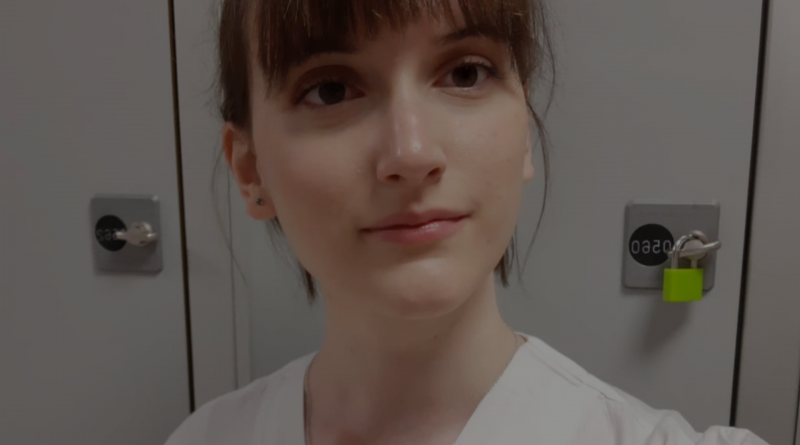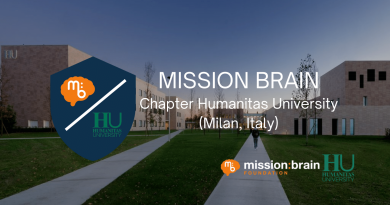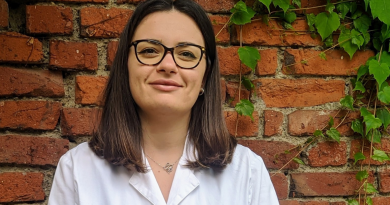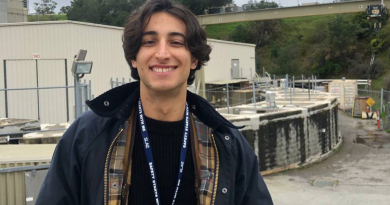Lab Experience Personal reflection – Angela Ferrari
Lab Experience Personal reflection
Angela Ferrari, Virgilio 3° Cohort Student, UNIMIB
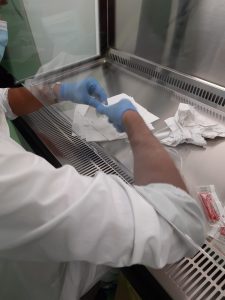
I got the opportunity to do my 2nd lab rotation at the Paolo Belli Laboratory of Hematology Diagnostics (Papa Giovanni XXIII Hospital, where I also attend my usual courses since I am part of the Bicocca SMS – School of Medicine and Surgery)
PI of the laboratory: Dr. Orietta Spinelli / Prof. Alessandro Rambaldi
Tutor: Dr. Benedetta Rambaldi
The Lab
The lab focuses on the laboratory diagnosis of hematological disorders, including both onset (initial diagnosis) and follow-up (MRD assessment), by means of flow cytometry, molecular biology (NGS, rtPCR, chimerism studies…) and cytogenetics. A lesser part of the activity is dedicated to clinical research, especially the monitoring of commercially engineered CAR T cells after reinfusion in suitable candidates, Blinatumomab Expanded T cells-mediated immunologic reconstitution in iNHL/CLL patients undergoing first-line chemotherapy, and the response of HSCT frail patients to the Covid-19 mRNA vaccine.
Previous Lab Experiences
Last year I attended my lab rotation at Fondazione Tettamanti in Monza, where I was able to study a very fascinating modality to enhance CAR-CIK cells to better direct them towards the AML bone marrow niche. Since then, I have kept in touch with my amazing tutor, Dr. Alice Pievani, who suggested that I carried out my second lab rotation at Paolo Belli lab. Considering that I blindly trust her judgement about what could be the better and most coherent continuation of my past experience, I ended up contacting Dr. Benedetta Rambaldi and Dr. Orietta Spinelli to set up my rotation, which eventually started in August and ended in October.
A Diagnostic Lab
First of all, the Paolo Belli lab is mainly a diagnostic laboratory rather than a research facility. And I must admit that, during my stay, I could not help but notice that working in a diagnostic lab rather than a research lab means that pace of working is much more frenetic. Do not get me wrong: researchers live a life full of hustle and issues that must be overcome. But, overall, research has many downtimes, and a great deal of research activity is to actually stop, stare, think and design experiments. In the diagnostic activity, I have been under the impression that tests must be carried out quickly, efficiently, reproducibly and with no mistakes of any sort. Which translates into the fact that most procedures are so standardized that it is almost impossible to make a mistake, even when they are performed very fast and in parallel with many other procedures. This also constituted the biggest challenge for me: I had to wrap my head around the many things that must be carried out simultaneously. So to say, I had to reach the next level of multitasking.
Take home message
The other very important take home message that I got from this enriching experience is that behind any diagnosis there is a great deal of investment in terms of resources, both economical but above all human. If I have been able to reach this level of awareness, it is only because of the amazing and inspiring team of scientists that surrounded me. These scientists were the perfect guides for my journey and enabled me to learn as much as possible in the time given. They have been more than accommodating, willing to help and incredibly attentive to me.
So, I must thank them dearly (Dr. Rambaldi, Borleri, Lucente, Salvi) for having provided me with an insight into their life, which, in the end, is what changes and saves the lives of many more.
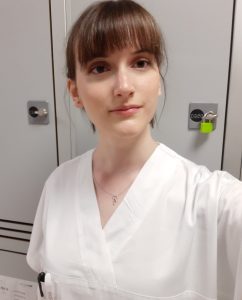
Virgilio 3° Cohort Student, UNIMIB
